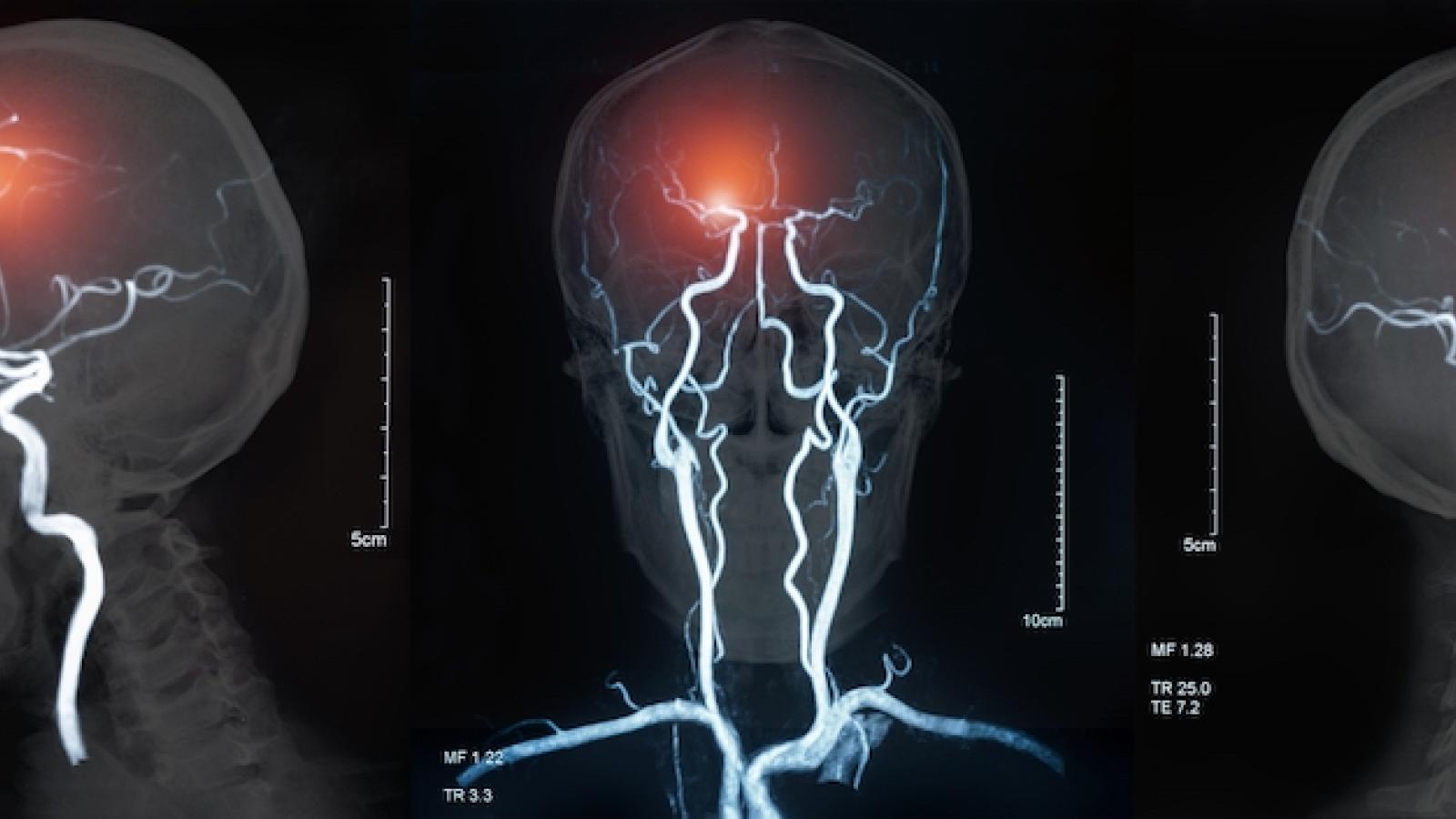Two cheap and common drugs could be re-purposed as the first specific treatment for people who experience a type of stroke linked to nearly half of all dementias, according to the results of a trial led by Prof Joanna Wardlaw (UK DRI at Edinburgh), presented at the American Heart Association International Stroke Conference.
Lacunar strokes affect at least 25,000 people in the UK each year. They’re thought to be caused by cerebral small vessel disease (cSVD), where small blood vessels deep within the brain become damaged and stop working properly. Lacunar strokes can have distressing effects as people may develop problems with their thinking and memory, movement, and even dementia. There are currently no effective treatments.
The LACI-2 trial indicates that isosorbide mononitrate and cilostazol, which are already used to treat other heart and circulatory diseases, can safely and effectively improve the debilitating outcomes people experience after lacunar stroke, particularly when they’re used in combination. The trial involved 363 people who had experienced a lacunar stroke. As well as their standard stroke prevention treatment, participants took either isosorbide mononitrate or cilostazol individually, both drugs together, or neither, for one year.
people in the UK experience lacunar strokes each year
Up until now, lacunar strokes have been treated just like other types of stroke, but lacunar stroke is clearly different. Now we understand more about what is triggering these strokes to attack the brain, we’ve been able to focus our efforts on treatments that can put a halt to this damageProf Joanna WardlawGroup Leader at the UK DRI at Edinburgh
The two drugs could be available as a treatment for lacunar strokes within five years, if the results are confirmed in further trials, according to the trial team led by Prof Wardlaw, in collaboration with Prof Philip Bath at the University of Nottingham. The trial was funded by the British Heart Foundation (BHF).
Prof Joanna Wardlaw explained:
“Up until now, lacunar strokes have been treated just like other types of stroke, but lacunar stroke is clearly different. Now we understand more about what is triggering these strokes to attack the brain, we’ve been able to focus our efforts on treatments that can put a halt to this damage.”
“We need to confirm these results in larger trials before either drug can be recommended as a treatment. However, as these drugs are already widely available for other circulatory disorders, and inexpensive, it shouldn’t take too long to move our findings from research into everyday clinical practice.”
The researchers first became interested in cilostazol and isosorbide mononitrate as they are thought to improve the function of the inner lining of blood vessels (the endothelium), and problems with the endothelium are thought to play a role in cSVD.
After one year, participants that took both drugs were nearly 20 per cent less likely to have problems with their thinking and memory compared to the group that did not take either drug. They were also more independent and reported a better quality of life.
Those who took isosorbide mononitrate were less likely to have had further strokes at one year than those who did not take the drug.
Individually isosorbide mononitrate also improved thinking and memory skills, and quality of life, while cilostazol improved independence and mood. But these effects were strengthened when the two drugs were taken together.
Professor Sir Nilesh Samani, Medical Director at the British Heart Foundation, said:
“These promising findings provide a long-awaited positive step towards the first treatments becoming available for lacunar strokes, offering much needed hope for thousands of people.
“Lacunar strokes are not the only way that cerebral small vessel disease can affect someone. These findings also open new avenues of research into other conditions related to small vessel disease, such as vascular dementia.”
The team is now planning to test these drugs in a larger four-year clinical trial, which they hope to start by the end of 2023. They are also looking to test whether the drugs are effective in different conditions linked to cSVD, such as vascular cognitive impairment and dementia.
To find out more about Prof Joanna Wardlaw’s work, visit her UK DRI profile. To stay up to date on the latest research news and institute updates, sign up to receive our monthly newsletter, ‘Inside Eye on UK DRI’.
Source: British Heart Foundation
Article published: 10 February 2023
Banner image: Shutterstock/create jobs 51
After one year, participants that took both drugs were nearly 20 per cent less likely to have problems with their thinking and memory
